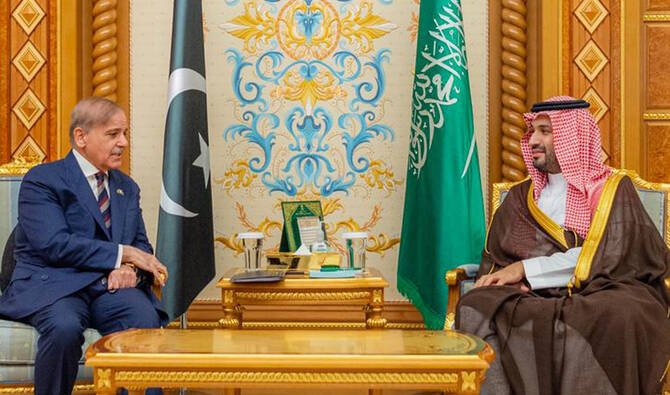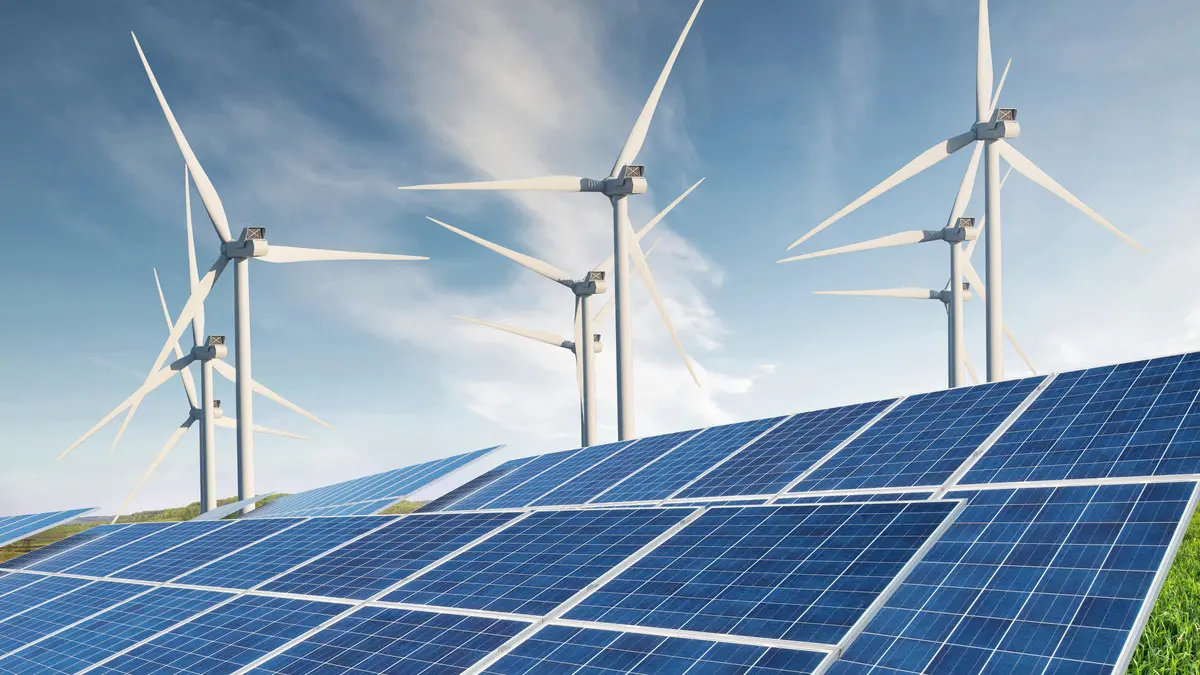In a meaningful and optimistic turn of events, the nations of Saudi Arabia and Pakistan have formally launched an ambitious economic cooperation framework, marking a fresh chapter in their long-standing partnership. Embodying both pragmatism and vision, this initiative emphasizes deepened trade ties, strategic energy partnership and a bold shared belief in growth through collaboration. At its heart lies the promise of a future shaped not only by mutual benefit, but by trust, respect and a joint sense of purpose.
A Renewed Partnership for New Horizons
For decades, Saudi Arabia and Pakistan have maintained strong ties rooted in both diplomatic proximity and economic linking. This newly unveiled cooperation framework underscores a modernization of that relationship: beyond the familiar patterns of aid and imports, the two countries are now looking to intertwine their economies deeply and sustainably. The framework is built on the shared economic interests of both nations and a mutual desire to strengthen trade and investment relations that serve common goals.
The timing and tone of the initiative are noteworthy. It comes at a phase where Pakistan is striving to stabilize and invigorate its economy, while Saudi Arabia is actively diversifying its economic base under its broader transformation agenda. By aligning their national ambitions, both sides signal that their partnership is evolving from goodwill into concrete, future-oriented collaboration.
Scope and Ambition: From Energy to IT and Agriculture
Under the framework, the two nations have identified several high-priority sectors poised for joint work. These include energy, industry, mining, information technology, tourism, agriculture and food security.
In particular, the energy domain stands out. Saudi Arabia and Pakistan are studying major projects like an electricity interconnection between the two countries and other energy cooperation agreements.
Consider the implications: an electricity interconnection could enable Pakistan to tap into power resources from the Kingdom, while Saudi Arabia could benefit from access to new markets, talent and strategic stability through a reliable partner. The move would reduce reliance on fossil fuel imports for Pakistan, enhance energy security for both, and send a positive signal to global investors about regional collaboration.
Similarly, in information technology and mining, Pakistan brings a youthful labor force and emerging tech sector, while Saudi Arabia offers capital, infrastructure and a strategic opening into new geographies. In agriculture and food security, Pakistan’s arable land and experience can mesh with Saudi Arabia’s investment capacity and strategic interest in stable food supplies. The synergy is evident.
Why It Matters for Pakistan
From Pakistan’s perspective, this agreement opens several doors. First, it signals a strengthening of investor sentiment. It provides an opportunity to address structural challenges. Energy shortages have long impeded industrial growth in Pakistan; forging ties with Saudi Arabia in power, mining and industry could provide a renewed foundation for growth.
The framework highlights participation for the private sector not just state-to-state deals thus offering Pakistani businesses a chance to plug into new value chains and markets.
Crucially, there is an element of equality in this partnership: rather than being purely a beneficiary, Pakistan figures as an equal partner in a framework guided by mutual interests, respect and strategic vision. That humanizes the relationship, offering hope and agency to ordinary people who may see the benefits in more jobs, better power supply, improved infrastructure and strengthened regional ties.

Why It Matters for Saudi Arabia
For Saudi Arabia, this deal aligns neatly with its long-term economic transformation agenda. The Kingdom is seeking to diversify away from heavy reliance on oil, expand its industrial base, embrace new sectors like mining and tech, and become a hub for regional trade and investment. By tapping into Pakistan, Saudi Arabia gains access to a large labor pool, a gateway to South Asian markets, and the potential to export not only capital but expertise and commerce.
Moreover, by committing to energy cooperation and diversification of trade partners, Saudi Arabia reinforces its regional leadership not just as an oil giant but as a hub of investment, interdependence and future growth. The framework bolsters the narrative of the Kingdom seeking partnerships that go beyond extractive economics towards inclusive growth, regional integration and shared prosperity.
Lastly, the human dimension matters. Saudi Arabia has a large Pakistani expatriate community, and this initiative signals to them and to Pakistan’s population a deeper, more stable economic engagement which may translate into tangible improvement in livelihoods, remittance flows and bilateral goodwill.
Early Signs, Key Projects and Implementation Challenges
Although the framework has just been launched, early indicators are promising. The two sides will explore various agreements for projects in energy and electricity interconnection.
At the same time, the previous years’ worth of memoranda provide context. In 2024, Pakistan and Saudi Arabia signed several agreements worth billions across multiple sectors.
However, successes will depend on implementation. Some of the challenges to watch include coordination across government agencies and differing bureaucratic cultures, infrastructure bottlenecks in Pakistan, aligning regulatory regimes, managing expectations from private sector partners, ensuring local benefit and job creation, and navigating global economic headwinds.
One concrete risk is that ambitious energy interconnections may require long lead times, heavy capital, cross-national regulatory alignment and stable demand. Pakistan must ensure that its domestic policies on regulation, transmission infrastructure, foreign exchange stability, investor protection and ease of doing business keep pace.
Another challenge is that both countries will need to ensure that the benefits are inclusive balancing regional, rural versus urban, and industry versus service sectors so that growth is not only headline numbers but social uplift.
The Broader Regional and Global Significance
Beyond the bilateral, this cooperation framework carries regional significance. It shows that countries in South Asia and the Gulf can build partnerships anchored in mutual economic interest—not just geopolitical necessity or aid dependency. It may inspire similar bilateral or multilateral economic linkages across the region.
In a wider global context, it highlights how economic diplomacy, infrastructure-led cooperation and shared energy systems can serve as tools of development and stability. In a time of uncertainty for global trade, rising protectionism, energy disruptions and climate change, a partnership of this kind offers a blueprint: invest in infrastructure, align interests, diversify economies, open markets, and strengthen regional networks.
Moreover, the focus sectors energy, technology, mining, agriculture, food security are exactly those that matter in the 21st-century world. They are central to climate resilience, digital growth and sustainable development. That Pakistan and Saudi Arabia are prioritizing them together suggests a forward-looking mindset.

What This Means for Ordinary People
For citizens of Pakistan, the immediate question is: what will change in daily life? Potentially, better power supply, more jobs in newer industries, increased foreign investment, improved infrastructure, and enhanced export markets meaning stronger GDP growth, potentially higher incomes, and more economic stability.
For Saudi citizens and residents, it could mean new avenues of industry, a broader base of trade and services, new regional linkages, diversification of the economy, and deeper integration with South Asian markets. For both sides, the human narrative is one of opening doors, of hope for growth, of bridging distances and building a shared future.
In many ways, this partnership speaks to something deeper: that economic progress is not just about numbers, but about dignity, opportunity, connection and shared aspiration. When two nations choose to collaborate rather than compete, when they choose to invest in each other’s future, then the benefits flow beyond spreadsheets they touch lives.
Looking Ahead: Key Milestones to Watch
- The signing of concrete project agreements in the next few months especially in energy, electricity interconnection and infrastructure.
- The next session of the Saudi Pakistan Supreme Coordination Council which will give strategic direction and perhaps oversee implementation.
- Progress in reforms in Pakistan to improve investment climate and infrastructure sustainability, which will determine how deeply Saudi capital and partnership translate into real outcomes.
- Monitoring of job creation, technology transfer, and balanced regional benefits within Pakistan especially in less developed areas.
- Monitoring of Saudi Arabia’s diversification efforts and how the framework supports its purpose of broadening economic partnerships, entering new markets and building regional bridges.
Conclusion
This new economic cooperation framework between Saudi Arabia and Pakistan marks more than a diplomatic statement it signals a realignment of two countries’ economic destinies with one another. It blends history and brotherhood with modern imperatives: trade, technology, energy, agriculture, food security and investment. It promises the possibility of shared prosperity, built on mutual respect, joint effort and concrete projects.
While the path ahead includes challenges of implementation, coordination and scale, the fact that the two countries have chosen to embark together on this journey is itself significant. For Pakistani entrepreneurs, workers, investors and citizens it is a banner of opportunity. For Saudi Arabia, it is a stepping stone into broader engagement, diversification and regional leadership.
If both sides deliver on infrastructure, policy, regulation, investment climate and human uplift, this framework can transform not just bilateral relations, but the lives of millions. In a world longing for growth that is inclusive, sustainable and meaningful, the Saudi Pakistan pact stands as a hopeful beacon of what cooperative, future-minded investment can achieve.
Do follow Gulf Magazine on Instagram.
Also Read- JPMorgan CEO Jamie Dimon Hails Saudi Arabia’s Transformation as Core to Global Growth Strategy



